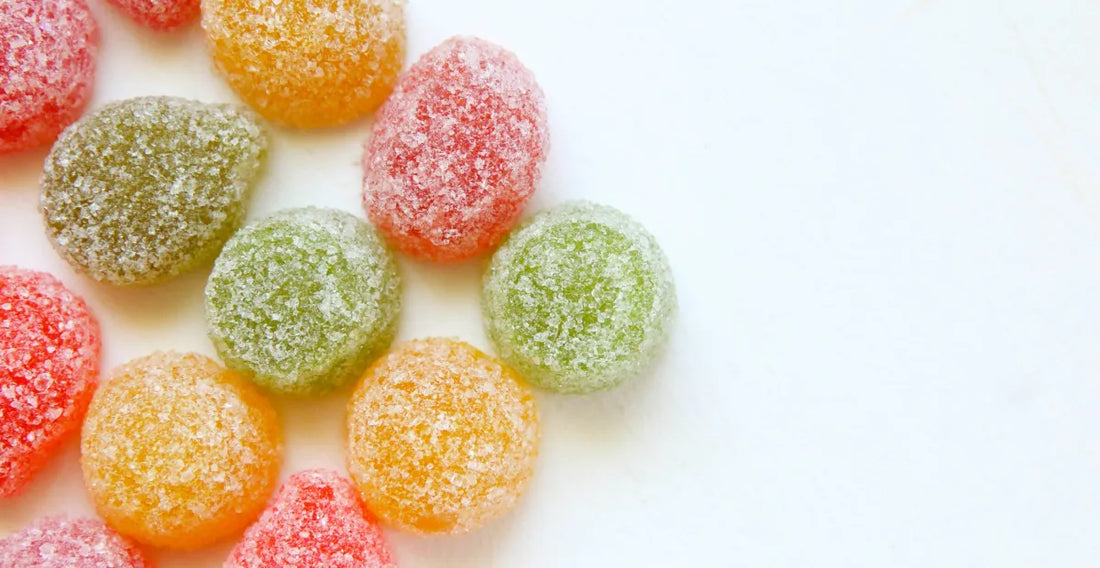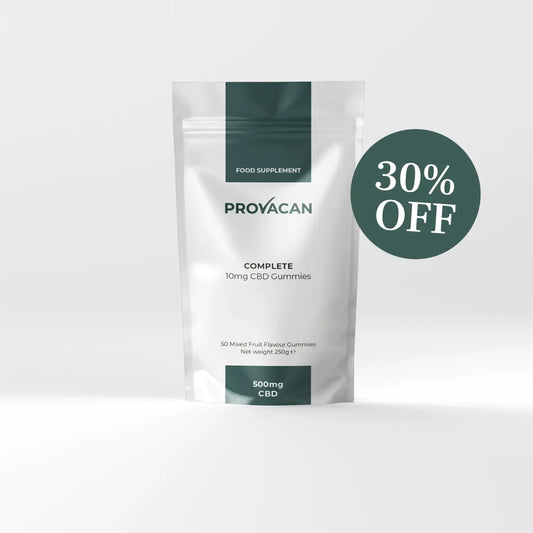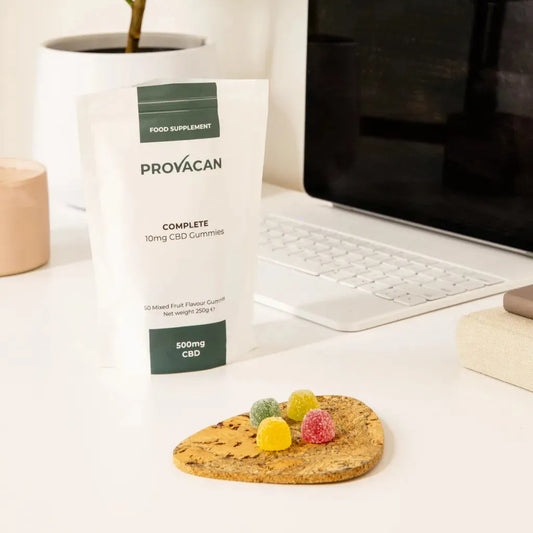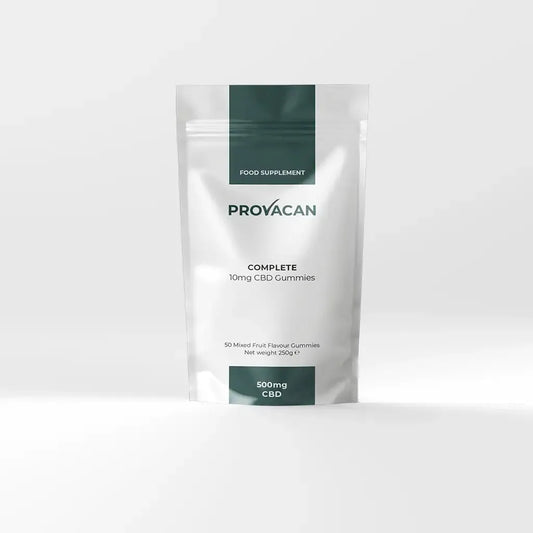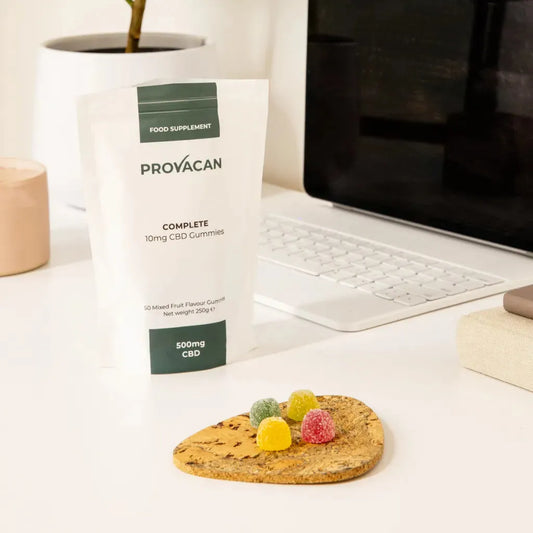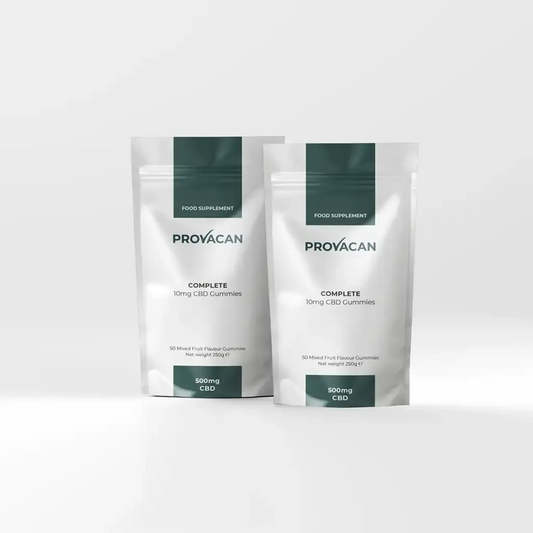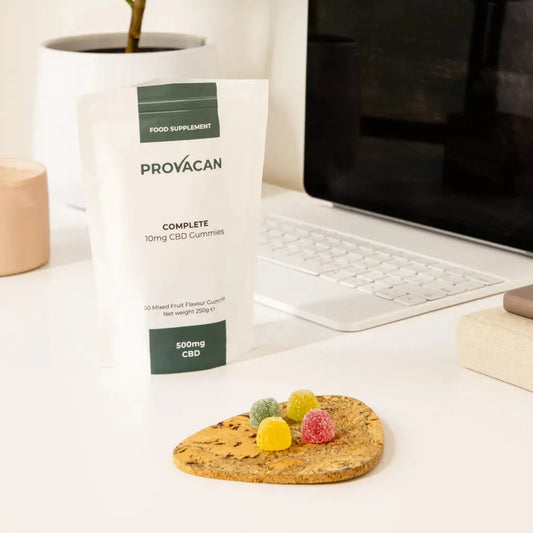Less-experienced consumers often mix up the terms “CBD” and “hemp” when discussing products. In general, these products aim for similar results, but there is actually a difference between the two.
In a comparison of hemp gummies vs CBD gummies, the biggest difference lies in the plant used to create them. Whether you’re trying to impress your friends or attempting to be an informed consumer, knowing these differences is essential.
If you’re interested in learning more, read this article covering hemp and CBD as materials as well as hemp and CBD gummies effects. You’ll be an expert in no time!
What is Hemp?
Hemp has been a useful material to humans for so long that the oldest recorded hemp artefact dates back to 8,000 BC. It is a versatile crop for everything from paper to cordage.
The term “hemp” describes specific strains of the cannabis plant, just like “marijuana,” except it refers to the plants that are non-intoxicating to humans. In other words, hemp refers to cannabis plants with less than 0.3% of Tetrahydrocannabinol (THC) in their chemical makeup.
THC is the psychoactive chemical in cannabis plants that cause humans to experience a “high,” or distortion of their brain function. Since hemp has very little of this active ingredient, consumption does not result in experiencing a high.
What is Made With Hemp?
Hemp is a renewable resource and can create so many things, both to consume and to use as materials. You’ll often see products like organic body care and health foods include hemp as an ingredient and selling point.
You can extract and separate the hemp seed so that different parts become useful.
The nut of the seed is great for granola, protein powder, bread, and dairy products. You can find the oil from the seed in cosmetics, dressings, margarine, paint, ink, fuel, and more. In addition, you can make animal food and flour from the cake.
The seed isn’t the only useful part of a hemp plant. You can also make bedding, mulch, insulation, concrete, and more out of the hemp stalk’s hurd. Further, you can create netting, canvas, carpet, clothes, and more out of the stalk fibre. Finally, the stalk is great for biofuel, paper products, filters, and cardboard.
Finally, you can find hemp in consumable forms like gummies.
Is Hemp Legal?
Despite all of its industrial uses, the United States has made it illegal to grow hemp as of the 1937 Marijuana Tax Act. All cannabis varieties came under the Controlled Substances Act of 1970, categorizing them as Schedule I drugs. This law has caused many to confuse hemp with other varieties of cannabis, and education on hemp’s benefits and lack of THC is unfortunate.
This confusion extends to the United Kingdom as well, where hemp is a controlled substance. Hemp growing, however, is legal in the UK under certain circumstances.
If you are considering growing hemp in the UK, you’ll have to jump through several hoops to do so. You’ll need an expensive license from the Home Office to start, along with an approved farm.
While hemp growing is legal, farmers are still not allowed to process the parts of the plant that produce the most THC. Using the flowers and leaves, therefore, is illegal. You’ll also have to be sure that the specific strain you are using is approved, meaning it must produce 0.2% THC or less and be of EU-approved origin.
These restrictions force the US and UK markets to rely heavily on imported hemp, which is legal.
What is CBD?
Cannabidiol (CBD) is predominantly found in the hemp plant which is part of the cannabis family. CBD is on of hundreds of cannabinoids and although it is a cousin to THC, it is very different on how it acts in the body.
CBD is the second active ingredient in cannabis plants, specifically from the hemp plant. You can extract CBD from the hemp plant and use it in a variety of ways.
Cannabis plants consist of over 100 different ingredients called cannabinoids. CBD is one of these cannabinoids, but people favour it for its lack of “high” and promising evidence of benefits.
What is Made With CBD?
To use CBD, you can find it in many different forms. Many people associate cannabis plants with smoking. When cannabis first became popular, it was common to roll up the leaves of the plant like a cigarette and smoke it.
Now, technology has changed the form of cannabis and its different parts into new consumable and topical products.
You can also take CBD in capsule form or liquid drops. In addition, CBD can is in sprays, gels, patches, and lotions for applying topically. Finally, there are some forms meant for use under the tongue, such as CBD crystals.
CBD is also infused into many products. You can find pillowcases infused with CBD and also CBD bath bombs for a relaxing spa day.
One of the most popular forms of CBD, however, is CBD gummies.
Is CBD Legal?
The lack of ability to get you high is why CBD is increasingly legalised everywhere. For a long time, CBD carried a stigma due to its origin in the cannabis plant. Still today, many people don’t understand CBD and are strictly against its production, sale, and use.
Increased education has allowed things to turn around, though. CBD legalisation has performed a slow takeover in state laws in the US, although it is federally still not legalised. In the UK, however, you can legally get a prescription for CBD oil.
Obtaining prescriptions for CBD, however, is another story. The UK still makes it fairly difficult to qualify for a CBD prescription. It also still requires that farmers not process the parts of the hemp plant that create the most CBD. As a result, the supply chain for CBD products suffers.
The majority of CBD products available come from other countries that can produce and process them legally. Then, companies import the products. CBD products are only legally sold in the UK if they are categorized as a food supplement or cosmetic. They cannot have medicinal use listed on their labels.
Hemp Gummies vs CBD Gummies
Upon first glance, hemp gummies and CBD gummies are extremely similar. They are both candy forms of supplements that have been studied to find their level of support for a healthy lifestyle. They are also both highly controversial and still not fully legalised.
Now that you understand hemp and CBD, however, you’re much closer to understanding the difference between hemp and CBD edibles. Hemp gummies contain hemp oil, while CBD gummies contain a chemical compound that is extracted from the hemp plant. Both are not marijuana or THC, but only related to them, like cousins.
Different Ingredients
While both hemp gummies and CBD gummies derive their ingredients from the hemp plant, they come from different parts of the plant. CBD is most easily extracted in large quantities from the flowers and leaves of the hemp plant. The stem and stalk of a hemp plant also contain CBD, but not as much.
CBD gummies are essentially candy that is infused with CBD, much like how many other products contain CBD. Packaging CBD in a candy form like CBD gummy bears makes consuming it easy, enjoyable, and delicious, while other forms of CBD are not as fun or good-tasting.
On the other hand, hemp gummies are made with hemp oil, which is extracted from the seeds of a hemp plant. Hemp oil has a different chemical makeup from CBD. Packaging hemp oil as candy, though, is also a way to help you benefit from hemp in an enjoyable way.
Different Nutritional Values
While getting good nutrition out of hemp and CBD gummies might not be on top of the list of reasons for consuming them, it’s still a factor. Hemp gummies often consist of other added benefits such as essential fatty acids and vitamins. These added ingredients help support your overall health.
CBD gummies often come with added vitamins like D3 and B12, which are essential for your overall wellbeing.
They might also contain compounds like cannabinol (CBN) and cannabigerol (CBG). CBG is another cannabinoid that is similar to CBD but interacts with your body differently.
Different Taste
Hemp plants have a distinct flavour, so how hemp products are processed will determine the taste you get when you consume them. Eating hemp oil or CBD in the gummy form will definitely help mask the taste. CBD, in general, may have less of a strong hemp taste than hemp oil, but it will depend on the quality of the product.
CBD Gummies Effects
There are so many other reasons to take CBD gummies, such as to replace smoking cigarettes or stop other bad habits. Some people also feel that CBD helps support good sleep.
Overall, many people swear by CBD supplements because they feel it has positively affected their health and wellbeing. Whether you believe the claims or not, you won’t know for sure until you try.
Hemp Gummies Effects
The effects of hemp gummies are less known because CBD currently dominates most of the legal cannabis market. Hemp, however, has many great benefits to its consumption despite not including CBD.
Some major benefits of hemp gummies that are less commonly known are their benefits for dietary maintenance. Many people take hemp gummies to supplement their diet and support daily activities.
In addition, hemp oil contains large amounts of omega-3 fatty acids.
Omega-3 fatty acids are very important in our diet because our bodies do not produce them naturally. Hemp gummies can act as a nutritional supplement in that way. Hemp oil users often choose hemp gummies for their high levels of omega-3 fatty acids to support a healthy gut and diet.
There are also claims that hemp oil can help soothe irritated skin, so many choose to add it to their hygiene routines.
Finding CBD Gummies Near Me
Hemp has great nutritional benefits, but CBD takes the win for the most positive effects. As for the question of hemp gummies vs CBD gummies, choosing which product works best for you should be a conversation with your doctor. If you’re looking to maintain a healthy lifestyle, though, buying a CBD product will definitely help.
Provacan offers free UK delivery on orders over £100 and can be shipped the same day. Whether you need oils, topicals, edibles, or more, you can learn more about these products through Provacan blog.

